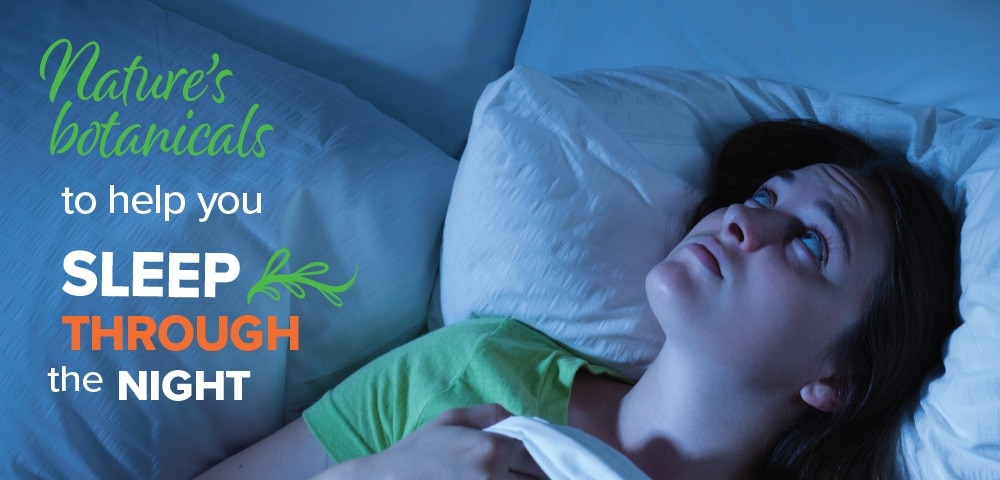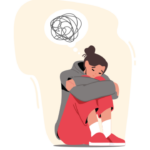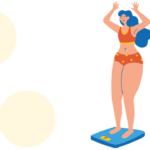
Nocturnal awakenings disrupt the sleep of about one-third of the population
NOCTURNAL AWAKENINGS ARE A REAL SCENARIO. You are sound asleep, and then you’re not! And many people find it almost impossible to go back to sleep. According to the Journal of Psychiatric Research, in a study of 8,937 people, 23% said they woke up at least once every night. And more frequently after age 50!
One of the biggest keys to health is a proper sleep cycle.
Our sleep cycle (circadian rhythm) is affected by the amount of light we receive throughout the day and night. When we are exposed to natural light during the day, our brain gets the signal to be more alert and awake, and when night falls, our body registers the shifting of light and prepares for sleep by producing melatonin. Melatonin is a natural pineal gland hormone released throughout the night to regulate sleep and deepen rest. However, many modern-day factors inhibit this process. Let’s look at aspects that negatively impact deep, sound sleep.
- Environmental factors and routines
Examples include unnatural lighting, too much external stimulation (blue light exposure), induced inner stimulation (drinking caffeine too late in the day) before going to bed, or loud snoring from a partner. - Fluctuating schedule
A differing sleep schedule because of shifts in life, such as travel and disorganized or irregular bedtime hours (like overnight shift work), greatly affect the quality of sleep. - Lack of nourishment/hydration
When the body is lacking proper nourishment via vitamins and minerals as well as proper hydration, it doesn’t have what it needs to regulate its functions. Some important vitamins and minerals for sleep are vitamin D, melatonin, B vitamins, theanine, calcium, and magnesium. Getting enough water is also imperative for good sleep. - Sickness disrupts healthy sleep
Any disease or illness can disrupt natural sleep patterns. When you’re sick, the body needs more energy to battle, causing more fatigue than usual. - Lack of exercise
When we get in the habit of not moving enough, our body gets used to not expending much energy, which leads to more tiredness when attempting new activities. Introducing a movement practice of any kind will greatly boost good brain chemicals that not only help with energy but also sleep regulation.
What can we do if our bodies are struggling to make melatonin?
New to the supplement market is tri-layered melatonin, created by Natural Factors. It contains additional botanicals to induce sleep and releases them at different times throughout the night, mimicking the cycle that would happen naturally.
What’s in tri-layered melatonin?
Aside from the main ingredient (melatonin), other ingredients that make this product so unique are:
- L-theanine – As an amazing amino acid that boosts chemicals in the brain (such as dopamine, GABA, and serotonin), it helps with sleep regulation and brings calm.
- 5-HTP – Not available in food, this chemical helps create more serotonin in the body and is only found in the seeds of the African plant Griffonia simplicifolia. 5-HTP helps with inducing sleep and prolonging the length of sleep.
- Valerian – Compounds from the root of this plant work directly by increasing the amount of GABA in the central nervous system (CNS). GABA is a chemical messenger that helps with regulation. It also interacts with other receptors (such as serotonin), which benefit mood and sleep.
- Passionflower – Also known as passiflora, it is a flowering type of vine efficient at reducing activity in the CNS, thus increasing feelings of ease in the body. Passionflower and valerian are commonly used together as they have very similar and complementary effects.
- Hops – Known commonly as an ingredient of beer, the female flowers of the hops plant have powerful sedative effects and have been used in herbal medicine for centuries.
My hope is that the content in this article will inspire you to experiment and re-evaluate your lifestyle habits and routines for a good night’s sleep, as waking up in the middle of the night can be a real drag. One minute you’re dreaming about a fantastic day at the beach. The next, you’re wide awake, disoriented, and stunned that it’s 3 am. Here’s to your next good night’s sleep.












